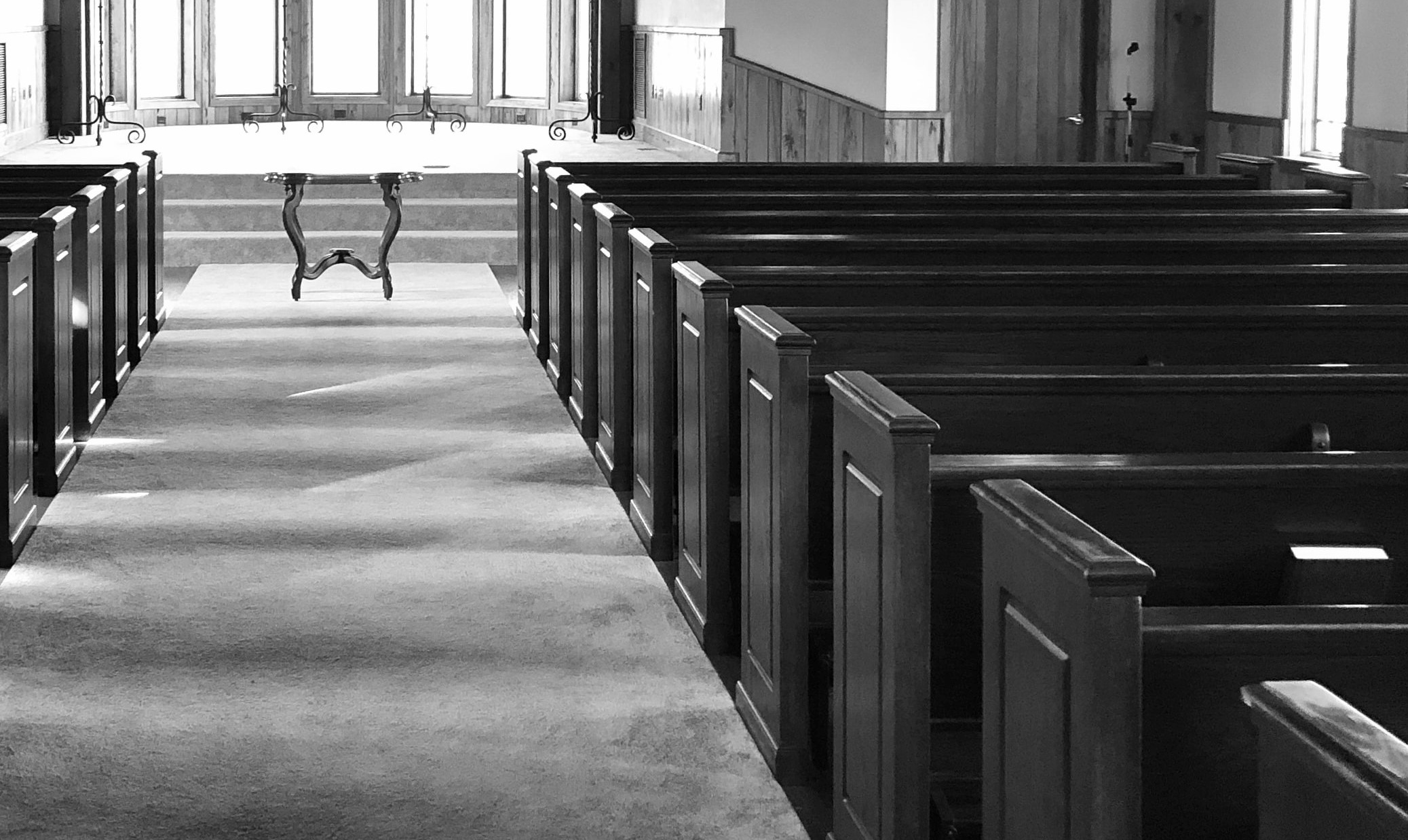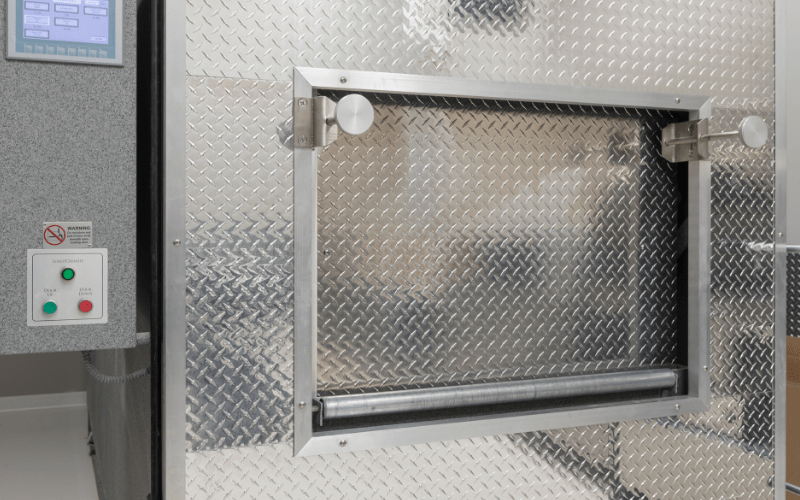When it comes to farewelling a loved one, there are too many funeral myths and much misinformation being told.
Australians spend $1.6 billion every year on funerals primarily because traditional funeral directors are ultimately salespeople. Like any other industry, the big players make their money by upselling things customers don’t really want or need and charge huge mark-ups on expensive items like coffins.
Unfortunately, we’ve heard from too many people who have been misled when they have arranged funerals for loved ones. We've been told about funeral directors being non-transparent on pricing when customers have inquired. At Bare, we believe it’s about time this culture changed.
When it comes to planning a funeral, we want to ensure Australians have the facts. This article separates the facts from the myths. And as you are about to read, we have heard a lot of them!
Understanding the fact from the fiction could make planning a funeral that much easier and affordable for you and your family.
MYTH 1: You must hire a funeral director
Fact: When a loved one dies in Australia, there is no legal requirement that a funeral director must be hired at all. The deceased person’s family can do as much or as little as they wish. They may dress the deceased, transport them to the crematorium, take care of all the legal paperwork, and even arrange the funeral, memorial, or vigil themselves. Families who aren’t comfortable taking on the entire process can engage a funeral director to work with them to coordinate a family-led led funeral.
Bare Cremation separates the cremation from any attended funeral ceremony. Leaving the paperwork, transport and cremation with us means you can plan a ceremony or personalised send-off that best reflects the life lived – without the extra costs of hiring a traditional funeral director.
MYTH 2. COVID-19 restrictions prevent you from holding a funeral
Fact: Coronavirus restrictions on social gatherings are changing the way we say goodbye when a loved one dies. Without the ability to gather in a traditional funeral ceremony setting, families are arranging a direct cremation at the time of passing, then planning a memorial or celebration of life later on, when family and friends can more freely travel and socially gather. Read our article, How coronavirus is changing funerals and the grieving process.Which brings us to the next myth…

MYTH 3. A funeral or memorial must be held before any cremation or burial
Almost a third (28%) of those we surveyed, as part of our Funeral Insights study, believed it was a legal requirement that a funeral or memorial must be held before any cremation service or burial can be performed.
Fact: This is not the case. There are no rules determining when a cremation or burial should lawfully take place. A cremation or burial can happen at any time, whether that is before or after a ceremony, or without any attended ceremony at all.
MYTH 4. Cardboard coffins cost more
Fact: ‘Cardboard coffins’ are made from recycled materials and cost significantly less to produce. Based on prices listed online, the cost of cardboard coffins range from about $300-$800 for a basic product used in a direct cremation, to about $3,000-$5,000 for a customised cardboard coffin. In comparison, the price of a more conventional coffin generally costs around $2,000-$10,000+ according to gatheredhere.com.au.
Some funeral directors, like Bare, include a cardboard coffin in their standard service fee. On the other hand, traditional funeral directors can be reluctant to offer families cardboard coffins because this is where they might stand to lose significant mark-ups, according to Funeral Directors Australia.
MYTH 5. The coffin must be present at the funeral or memorial
A third (33%) of those we surveyed believed it was a legal requirement that a coffin or casket is present at the funeral or memorial ceremony.
Fact: As we mentioned above, the funeral or memorial may take place after a cremation or burial has taken place. This has been especially commonplace during the pandemic, when loved ones have not been able to gather immediately after passing. In that case, there will be no coffin available for display at the ceremony. Instead, families usually set up a memory table with the deceased’s photo and some personal effects, to pay tribute to their memory.
MYTH 6. A funeral service needs to be held in a church or chapel
Fact: As Australians today are less religious, families are shifting away from church funerals in favour of ceremonies at parks, gardens and other places in nature. Celebrants can be hired to officiate the proceedings, but this can just as easily be done by a family or friend. If the deceased person wasn’t a church-goer or religious, it doesn’t make much sense to hold their send-off at a place of worship.
Read our article 13 unique memorial service ideas to learn about everything from themed memorials, to sending ashes skyward with a fireworks display.

MYTH 7. A viewing is necessary for closure after a death
Fact: Whether to view the deceased person’s body as part of the funeral process is an individual decision. However, two-thirds (64%) of those we surveyed viewed the tradition as not important. When the death was expected, loved ones have usually had the opportunity to say their goodbyes. They have generally accepted the reality of the passing without a need to view the body.
MYTH 8. There’s no way of telling whose ashes are whose
Fact: The process of tracking who is who during cremation is strictly regulated in Australia. Before cremation, an ID number is assigned and stamped on a metal plate. This ID plate then accompanies the deceased person throughout the cremation process. The coffin is also accompanied by a card that provides all the relevant information, which remains with it until the ashes are returned to the family.
MYTH 9. Multiple bodies are cremated together
Fact: The cremator used to cremate the deceased person’s body and the coffin, is a cubicle that will only allow for one standard-sized coffin to fit inside. So even if we wanted to cremate multiple bodies together, they wouldn’t fit!
MYTH 10. Cremated ashes must be kept in a decorative urn or cemetery niche
Fact: Once the remains are returned home, there are almost limitless possibilities for what to do with ashes. They can be scattered, divided between family members to keep in separate locations, buried, planted into a tree, or made into keepsakes. Cremated remains are not a health hazard, so there is no safety regulation around handling or storing ashes. For some ideas, read out article, What to do with ashes after cremation.

MYTH 11. ‘Protective’ caskets help preserve the body
No casket available to the funeral industry will preserve the body forever. So-called protective, or ‘sealed’ caskets can keep out elements like air and water for a while, but the body will still decompose. Additionally, these sealed coffins interfere with the body’s natural dehydration and commonly cause the casket to burst.
MYTH 12. Funeral insurance is a financially secure way to pay for a funeral
Fact: Only a third of funeral insurance policies ever get paid out, because they are not a savings plan. Premiums generally rise every year, leaving pensioners unable to maintain the rising costs. If it is cancelled before the policyholder has died, they won’t get anything back.
Another trap is due to the rising costs of funerals. Interest accrued by a funeral insurance policy may be outpaced by the rising cost of a funeral, which is often less than the payout amount. To avoid inflation, consider a prepaid funeral plan with a funeral provider like Bare.
MYTH 13. Prepaid funerals are expensive
Fact: Many people don't prepay because they don't think they can afford to. That's where Bare comes in. We've simplified funerals and removed all of the unnecessary extras that cost a fortune, saving Aussies up to 80% off the cost of a traditional funeral. We'll even let you make small and affordable payments over a five-year period.
MYTH 14. We’re are going to steal your money
Fact: A Bare prepaid funeral plan is completely secure. All of our customers' money is held in a regulated bond with Lifeplan Australia Friendly Society, in association with Australian Unity. This is your money, invested specifically to cover the cost of your funeral, so we don’t have access to it.
To arrange a no-nonsense and fully secure funeral plan, visit the Bare website, or call 1800 071 176 for immediate need, or 1800 202 901 to pre-pay. Bare Cremation's Funeral Insights Study was conducted in July 2021, based on a sample of 850 Australians.
Disclaimer: This article provides general information only and does not constitute professional advice. Please consult a qualified expert for guidance specific to your situation.





.jpg)

